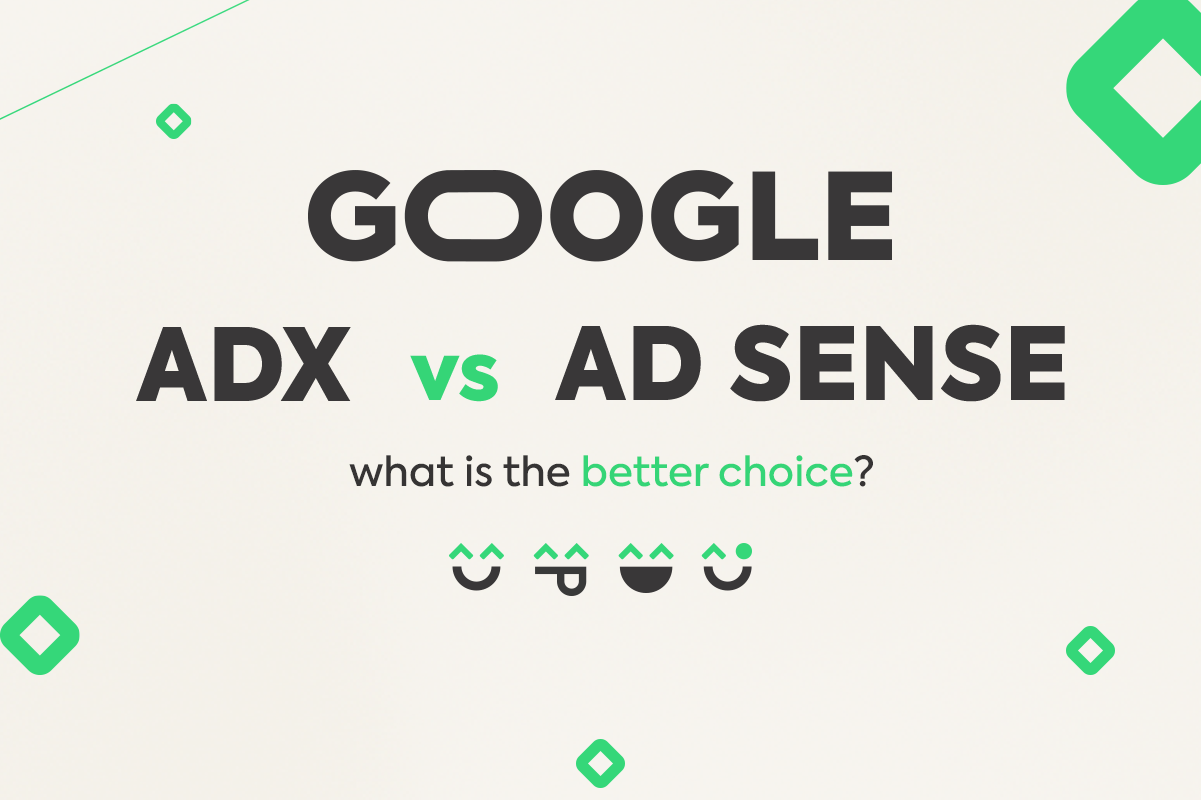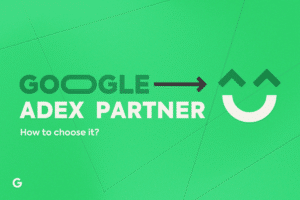If you’re a publisher aiming to maximize your website’s ad revenue, you’ve likely come across Google AdX vs. AdSense. Both are Google platforms geared towards site monetization, but each offers distinct features and benefits. In this article, we’ll comprehensively compare Google AdX and AdSense, helping you make an informed decision about the superior option for your site.
Index
What is Google AdX?
Google AdX, also known as Google Ad Exchange, is a programmatic advertising platform specially tailored for large-scale publishers. As an advanced version of AdSense, it provides more sophisticated ad optimization and control capabilities.
With Google AdX, publishers gain access to real-time ad auctions, where advertisers compete for premium site ad placements. This competition results in higher bids for ad spaces, potentially leading to increased revenue for publishers. Additionally, AdX enables setting minimum prices for ad spaces, empowering publishers to maximize their revenue.
Another advantage of Google AdX is its access to a premium inventory of renowned advertisers. This ensures that publishers can display high-quality and relevant ads on their sites, delivering a more engaging advertising experience for users.
What is Google AdSense?
Google AdSense is a Google advertising platform designed for publishers of all sizes, ranging from small blogs to large content sites. It’s a simpler and more accessible option compared to Google AdX.
The primary benefit of Google AdSense lies in its user-friendliness. With just a few straightforward setup steps, publishers can begin displaying ads on their sites and generating revenue swiftly. AdSense also offers a variety of ad formats, from text ads to graphics and video ads, catering to diverse publishers’ needs.
A crucial feature of AdSense is its automated ad serving process. Publishers only need to add a small code provided by Google to their sites, and the AdSense system automatically selects and displays the most relevant ads to the site’s audience.
Google AdX vs. AdSense
Now that we grasp what each platform offers, let’s compare Google AdX and AdSense across various aspects:
- Size and Scale: Google AdX targets large-scale publishers with high traffic volumes, making it ideal for sites with hundreds of thousands or millions of monthly impressions. On the other hand, Google AdSense is accessible to publishers of all sizes, ranging from small to large.
- Control and Optimization: Google AdX affords greater control and customization for publishers. They can set minimum prices for their ad spaces and filter unwanted advertisers, allowing for revenue optimization and an advertising experience aligned with their objectives and values. In contrast, Google AdSense offers less control but represents a simpler and more accessible choice, particularly for novice publishers.
- Revenue Potential: Google AdX boasts higher revenue potential owing to its access to high-quality ad auctions and premium inventory. The competition for higher-value ads typically drives up prices and increases revenue for publishers. Nevertheless, while Google AdSense may generally offer lower revenue compared to AdX, it remains a profitable option for publishers with lower traffic.
- Support: Google AdX provides dedicated and personalized support for large-scale publishers, offering the assistance of account managers. Google AdSense provides support on a smaller yet comprehensive scale, including support resources and a customer service team to address queries and resolve common issues.
Which is the Best Choice for You?
The decision between Google AdX and AdSense hinges on your site’s profile and requirements. If you’re a large-scale publisher with high traffic, Google AdX may represent the superior option for maximizing your revenue and managing ad serving. Its advanced features and access to high-quality auctions make it appealing.
Conversely, if you’re a beginner publisher or have lower traffic, Google AdSense may be more suitable for you. Its ease of setup, support for various ad formats, and accessibility to publishers of all sizes make it a compelling choice.
Ultimately, both platforms offer opportunities for monetization and revenue generation. By evaluating your specific needs and revenue goals, you can make an informed decision about which platform is the best fit for your site.
Rely on Grumft for Support
If you remain uncertain about which platform to choose, rely on Grumft for assistance. We specialize in programmatic solutions for publishers and advertisers, and we can provide personalized guidance to optimize your advertising and monetization outcomes. Our team stands ready to support you at every stage of the process, ensuring you achieve your goals and excel in the realm of digital advertising.





